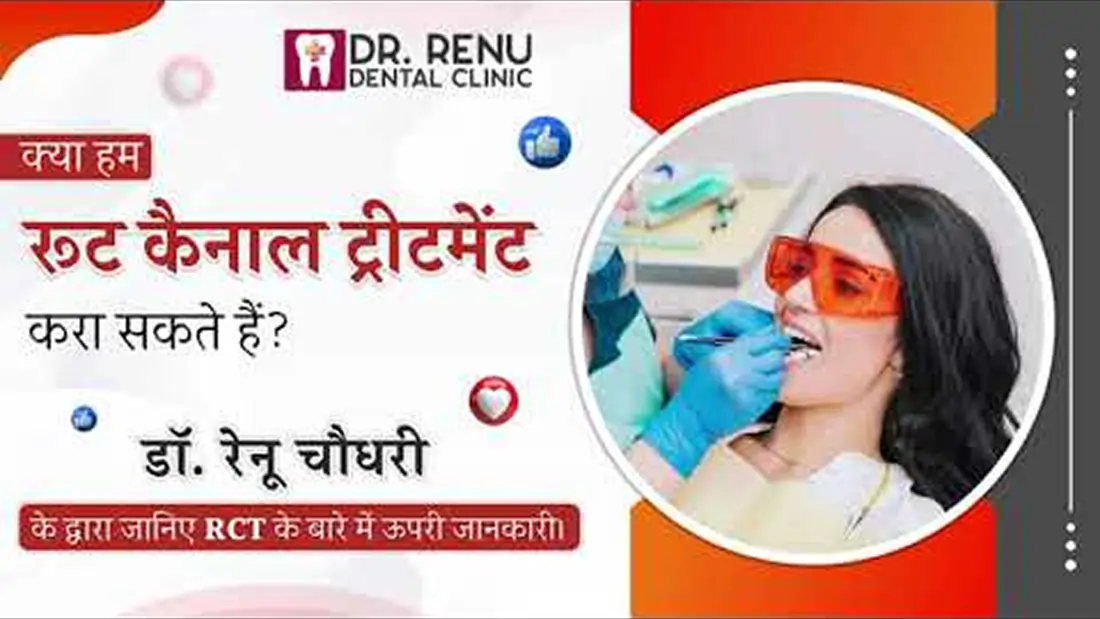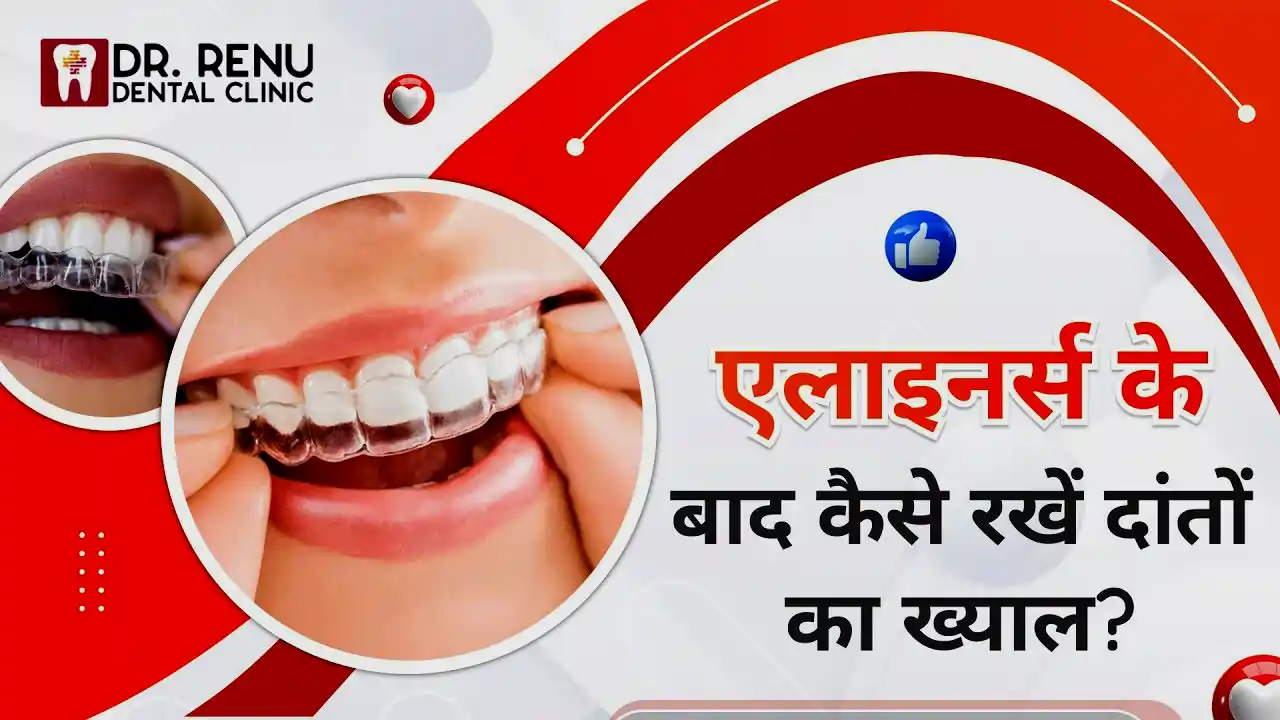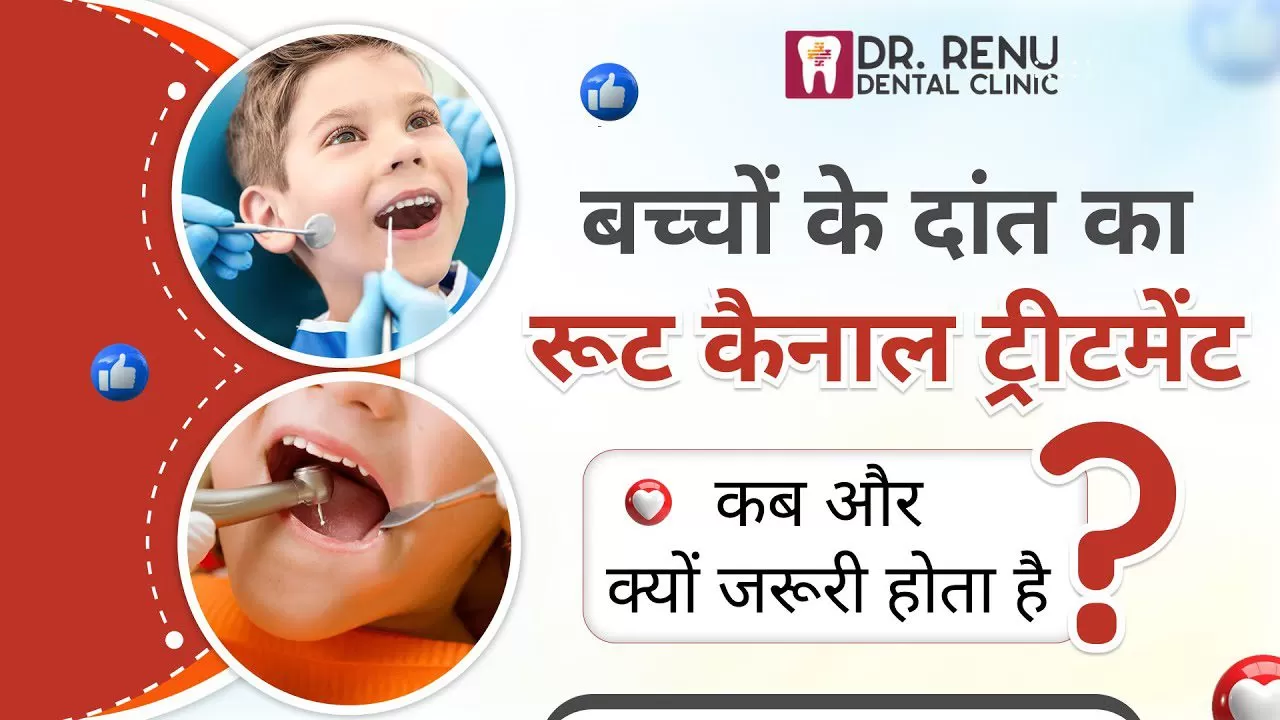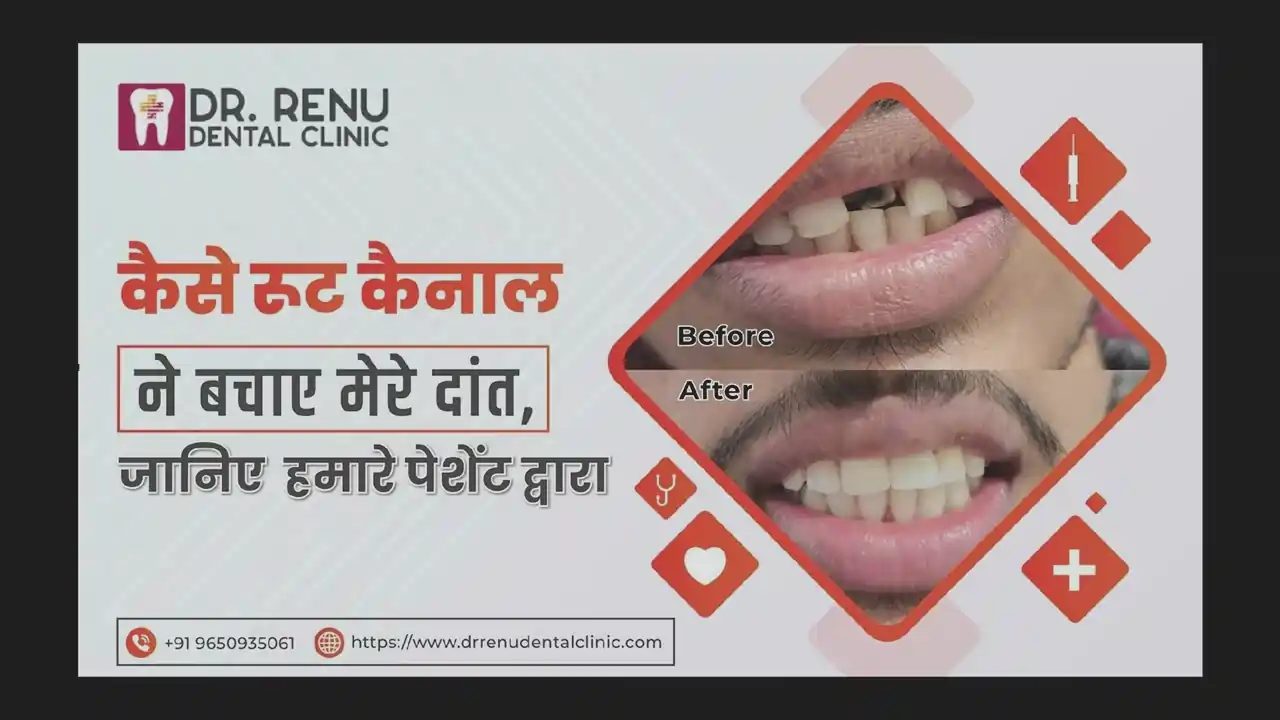Call us
+919650935061Address
Nirman Nagar, JaipurGoogle Rating
5.0( 607+ Reviews )

Overview
Overview of wisdom tooth

Overview
Overview of wisdom tooth
The wisdom tooth usually appears between the ages of 17 and 25, referred to as the “age of wisdom” at the very back of your mouth. Wisdom teeth, which are the third molars in the back of the mouth, should not be taken out if they are healthy, cleaned properly, grown fully, etc. Interestingly, these teeth are helpful or essential for our ancestors because they require extra chewing power like raw food, tough food, nuts, meat, etc. But now times have changed due to changes in diet, jaw size, etc. The space for wisdom teeth is not enough to grow properly, and because of this, it is difficult to clean wisdom teeth properly; this may lead to gum disease, cavities, infection, pain, and misalignment of teeth. So, in this case, wisdom tooth removal in Jaipur is recommended to prevent future complications. You can reach out to Dr. Renu Chaudhary, who has more than 15 years of experience and can provide you with the best solutions.
Symptoms that indicate
What are the symptoms that indicate wisdom teeth removal needs?
If you are experiencing any of these symptoms, then visit Dr. Renu Dental Clinic for Pain-Free Wisdom Tooth Extraction in Jaipur. These Symptoms are as below:
Bad breath
Food is trapped around your wisdom teeth, which causes bad breath and an unpleasant taste.
Chewing problems
You are facing difficulty chewing foods and stiffness while opening the mouth.
Swelling
Having swelling or redness around the tooth, jaw, or cheeks.

Headache and ear pain
Due to pressure or nerves, you may feel consistent pain in your ear or have a headache.
Gum infection
If wisdom teeth are not treated, then they can create pus and infection around the tooth, or, in severe cases, the person suffers from fever too.
Crowding
If wisdom does not get proper space to grow, then it creates crowding and misalignment.

Bad breath
Food is trapped around your wisdom teeth, which causes bad breath and an unpleasant taste.
Chewing problems
You are facing difficulty chewing foods and stiffness while opening the mouth.
Swelling
Having swelling or redness around the tooth, jaw, or cheeks.
Headache and ear pain
Due to pressure or nerves, you may feel consistent pain in your ear or have a headache.
Gum infection
If wisdom teeth are not treated, then they can create pus and infection around the tooth, or, in severe cases, the person suffers from fever too.
Crowding
If wisdom does not get proper space to grow, then it creates crowding and misalignment.
Health Tips
Your Guide to a Healthier Smile
Our health tips video is given below which gives you a guide and practical advice to maintain a healthy smile. Learn expert tips from Dr. Renu on oral hygiene, preventive care, and nutrition to keep your teeth strong and bright every day.

15+ Years of Experience

Meet Our Doctor
Dr. Renu Chaudhary
BDS, MDS & PGCOI(PGI)
Dr. Renu Chaudhary, Wisdom Tooth Surgery Specialist in Jaipur. With over 15 years of experience, she offers professional dental care to cure wisdom teeth-related problems, whether it is a simple or complex extraction. She is known for her expertise, professional care, budget-friendly, painless treatment, and ensuring a safe and comfortable environment for the patients. She and her team create a warm and inviting atmosphere, ensuring that patients are comfortable during the process. Trust Dr. Renu Chaudhary to remove your wisdom tooth smoothly and expertly.
20K+
Dental Procedures
10K+
Smile Makeovers
20K+
Happy Patients
Why Choose
Why Choose Dr. Renu Dental Clinic for Wisdom Teeth Removal?
By choosing Dr. Renu Chaudhary, you get Pain-Free Wisdom Tooth Extraction in Jaipur with advanced technologies.
Modern facilities
Our clinic provides a modern facility that is clean and comfortable and also ensures that during their stay, patients feel at ease and secure.
Proven track record
With more than 15 years of experience and having done 20k+ dental procedures, she set herself up as the best dentist for wisdom tooth surgery in Jaipur.
Affordable pricing
Our clinic provides you with treatment with top-notch care at affordable prices. We offer clear and transparent pricing with no additional cost.
Modern facilities
Our clinic provides a modern facility that is clean and comfortable and also ensures that during their stay, patients feel at ease and secure.
Proven track record
With more than 15 years of experience and having done 20k+ dental procedures, she set herself up as the best dentist for wisdom tooth surgery in Jaipur.
Affordable pricing
Our clinic provides you with treatment with top-notch care at affordable prices. We offer clear and transparent pricing with no additional cost.
What are the types of wisdom teeth?
Wisdom teeth also known as third molars can be categorized based on their position and alignment. So here are the main types:
Upper wisdom tooth
The teeth in the top portion of the mouth are known as upper wisdom teeth. Within this category, wisdom teeth can grow in three different ways.
- Erupted upper wisdom teeth:
Upper wisdom teeth that have fully erupted into the mouth without causing any issues. But if they cause overcrowding or decay the surgery can be done.
- Titled upper wisdom teeth:
The term “tilted upper wisdom teeth” refers to teeth that have not developed straight and may be rotated or crooked.
- Impacted upper wisdom teeth:
Upper wisdom teeth that have not been able to emerge through the gums and are lodged in the bone or behind the gums are known as impacted teeth.
Lower wisdom teeth
These that wisdom teeth that are located in the lower part of the mouth. Within this category, wisdom teeth can grow in three different ways.
- Erupted lower wisdom tooth:
Which are fully erupted in the mouth without causing any complications.
- Titled lower wisdom tooth:
Tilted wisdom teeth have erupted in a crooked or twisted position.
- Impacted lower wisdom teeth:
The impacted wisdom teeth remain trapped under the bone or gums.
Your Guide to a Healthier Smile
Our Health Tips Video Series offers easy, practical advice for maintaining a healthy smile. Learn expert tips on oral hygiene, preventive care, and nutrition to keep your teeth strong and bright every day.
What are the causes of wisdom teeth removal?
Is the back of your mouth hurting, swelling, or uncomfortable? Perhaps your wisdom teeth are to blame! It’s important to diagnose the problem with the Wisdom Tooth Surgery Specialist in Jaipur. Some of the major causes are:
- Pain and discomfort
If you are feeling any significant pain and discomfort in wisdom teeth, it’s due to infection, impaction, or lack of space. This led to swelling, jaw stiffness, etc.
- Difficulty in cleaning
Because of their position at the back of your mouth, it becomes a challenge to brush and floss. So, it increases the risk of infection and bad breath.
- Overcrowding
Your wisdom teeth may crowd and misalign other teeth if there is not enough space in your mouth.
- Gum disease
If your wisdom teeth partially erupt, then they can trap food, which causes gum infection, discomfort, and swelling.
- Tooth decay and cavities
It’s hard to clean wisdom teeth, and because of this, it leads to decay, cavities, and plaque.
- Cysts or jaw damage
If your wisdom teeth are impacted, then they can develop cysts that damage the jawbone, nerve, and nearby teeth.
- Infection and abscesses
If your wisdom teeth partially erupt, then bacteria get into them and create pockets (pus) which leads to abscesses or infection.
What are the symptoms that indicate wisdom teeth removal needs?
If you are experiencing any of these symptoms, then visit Dr. Renu Dental Clinic for Pain-Free Wisdom Tooth Extraction in Jaipur. These Symptoms are as below:
- Bad breath:
Food is trapped around your wisdom teeth, which causes bad breath and an unpleasant taste.
- Chewing problems:
You are facing difficulty chewing foods and stiffness while opening the mouth.
- Swelling:
Having swelling or redness around the tooth, jaw, or cheeks.
- Headache and ear pain:
Due to pressure or nerves, you may feel consistent pain in your ear or have a headache.
- Gum infection:
If wisdom teeth are not treated, then they can create pus and infection around the tooth, or, in severe cases, the person suffers from fever too.
- Crowding:
If wisdom does not get proper space to grow, then it creates crowding and misalignment.
Transform Your Smile with Expert Dental Care!
Let’s Request a Schedule For Consultation
Book AppointmentWhat is the treatment of wisdom teeth?
Comprehensive treatment for wisdom teeth is offered by Dr. Renu, a Wisdom Tooth Surgery Specialist in Jaipur which includes:
Home remedies
- Using saltwater rinse with warm water
- Apply a few drops of clove oil to the painful area.
- Use ice packs on the affected side
- Use fresh garlic and apply it to the painful area, as it has antibacterial properties.
- Make turmeric paste and apply it to the swollen gums.
- Use different types of oils like lavender, oregano, thyme essential oil, etc.
Over-the-counter treatment
- Take pain relievers.
- Use medicated mouthwashes.
- Use a cold and warm compress.
- Use medical oral gels and ointments.
Prescription treatment
- Use antiseptic mouthwash and gels.
- If a wisdom tooth is infected, your dentist may prescribe an antibiotic.
- Painkillers for severe pain relief
- Muscle relaxants for jaw pain and stiffness.
What are the advanced wisdom tooth treatments available at Renu Dental Clinic?
Wisdom Tooth Removal Treatment in Jaipur by Dr. Renu Dental Clinic uses the newest dental technology to provide innovative treatments for wisdom tooth pain and problems. The clinic ensures a comfortable and painless experience by offering both non-surgical and surgical solutions.
- Digital 3D imaging
We use cone beam CT and digital X-rays for precise evaluation and better diagnosis.
- Laser surgery
We use laser-assisted surgery for faster healing and microsurgical techniques that help to remove wisdom teeth with less pain.
- PRF (platelet-rich fibrin)
Dr. Renu Chaudhary, a Wisdom Tooth Surgery Specialist in Jaipur, uses this technique to promote faster gum and bone healing. This technique helps you to reduce the risk of dry sockets too.
- Sedation dentistry
Our clinic offers a lot of options to choose from beyond local anaesthesia, from nitrous oxide to sedation IV. These techniques help the patient to feel painless wisdom tooth removal and have no memory of the extraction.
Why is it Important to Consult a doctor for wisdom tooth treatment?
If you are suffering from any pain, discomfort, or difficulty in chewing, then don’t wait to visit Dr. Renu’s dental clinic for wisdom tooth extraction surgery in Jaipur for a personalized consultation. Here is the reason for early consultation:
Early diagnosis—impacted wisdom tooth:
If we diagnose an early impacted wisdom tooth, then it can reduce the future risk and prevent infection, pain, discomfort, or misalignment.
Avoids extreme pain and discomfort:
The impaction, misalignment, or infection of wisdom teeth can result in extreme pain. So, timely prevention keeps pain from getting worse, and you enjoy your daily life while having tasty food.
Early detection of risk:
The benefit of seeing a dentist is that you can find out whether you have any underlying problems. Serious illnesses like tumours, jawbone damage, and cysts are prevented from spreading by this early detection.
Identifies Nerve Problems Before They Impact Function:
Sometimes, impacted wisdom teeth can put pressure on the jaw’s nerves, resulting in symptoms like tingling, numbness, or pain in the tongue, chin, or face. Early detection of these issues allows wisdom tooth removal in Jaipur to take action to reduce nerve damage and maintain sensation and function in the impacted areas.
When Should You Consult a Doctor for Wisdom Tooth Treatment?
If wisdom teeth are not treated correctly, they can lead to several dental and severe problems. It’s time to consult Dr. Renu Chaudhary for wisdom tooth removal in Jaipur if you have any of the following symptoms or conditions:
- Chronic Headaches with Jaw Pain:
By the pressure of a wisdom tooth, you may feel persistent jaw discomfort, ear pain, migraine, or headache.
- Having trouble speaking or swallowing:
Due to wisdom teeth and swelling, it becomes a challenge to speak and swallow food or feel the lump in a throat and the sensation of construction.
- Recurrent Sinus Issues:
If wisdom teeth are in the upper jaw, then they can cause infection, sinus issues, congestion, frequent headaches from the sinus, or breathing problems.
- Gum disease or tooth decay:
If your gum disease and cavities increase, then it is because your wisdom teeth are partially erupting and are not able to clean properly. Moreover, it can lead to periodontal disease if bacteria develop.
- Tumours or Cysts:
Formation of cysts filled with fluid, which can harm the teeth and jawbone nearby when wisdom teeth are treated. In some cases, abnormal tissue growth can lead to tumours, too.
What are the Questions you Should ask Your Dentist?
Here are the questions you must ask your dentist while seeking Wisdom Tooth Removal in Jaipur:
- How many wisdom teeth must be extracted?
- Which kind of anaesthesia are you going to employ?
- Will this process be difficult?
- How much time will the process take?
- Have other teeth been harmed by the impacted wisdom teeth?
- Could nerve damage result from this?
- What additional dental care will I require?
- How much time does it take to recover?
What are the ways to prevent wisdom teeth?
Although you cannot stop wisdom teeth from erupting, you can take precautions against issues including discomfort, infection, and misalignment. The following are the best methods to avoid wisdom tooth issues:
- Frequent dental examination:
Dental examinations should be done every six months. By this, you can take preventive measures before symptoms get worse or start to develop.
- Oral hygiene:
You can stop bacteria from growing and causing infections by practicing good oral hygiene. It can be accomplished by using mouthwash, floss, and twice-daily tooth brushing.
- Water intake:
Drink a lot of water to help cleanse your teeth and gums of bacteria and food particles.
- Reduce your intake of sugar:
Eating sweet, sugary foods may be linked to cavities.
- Consider early extraction if required:
If dentist predicts future problems caused by impacted or misplaced wisdom teeth, they may recommend a preventive extraction. Early extraction (before pain or infection starts) leads to a quicker recovery and fewer complications.
What are the Risks Associated With wisdom teeth?
The risks can vary depending on whether the wisdom teeth are impacted, partially erupted, or fully erupted. The most frequent risks are as follows:
Pain and infection:
When wisdom partially erupts then it can lead to pain, swelling, infection, etc, and also facing difficulty while opening the mouth.
- Location of teeth:
The location of wisdom teeth is like that we are not able to clean so it increases the risk of infection.
- Cavities:
When wisdom teeth partially erupt, they create pockets because bacteria and food particles get trapped leading to decay.
- Jaw pain and nerve damage:
If a wisdom tooth is impacted then it causes discomfort and also affects jaw movement. If the removal process is not on time, then it can lead to nerve damage too like you can numbness in the lips, chin, or tongue.
- Sinus issue:
Since the upper wisdom teeth are near the sinuses, they may result in sinus infections, pressure, or congestion.
Do’s and Don’ts During Wisdom Teeth Treatment:
Taking care of yourself during wisdom tooth surgery is important. Here are the common Do’s and Don’ts during wisdom teeth treatment in Jaipur:
| Do’s | Don’ts |
|---|---|
| Consume soft meals such as soups, mashed potatoes, and yogurt to prevent dental pressure. | Do not eat hard or crunchy food or food that can get stuck in your wound. |
| Take medicines prescribed by your dentist to manage pain. | Avoid smoking and alcohol because they can increase the risk of infection or slow recovery. |
| Brush and floss your mouth daily to avoid bacteria buildup. | Don’t go for hard workouts until your dentist gives you a green signal. |
| If bleeding occurs, use a fresh cloth or piece of cotton wool to apply pressure to the area for at least ten minutes. | Don’t drink through a straw; it can cause blood clots and dry sockets. |
| Use cold packs on your face for about 10 minutes to reduce swelling. | Avoid using your tongue or fingers to touch or poke the wound. |
How Long Can Wisdom Tooth Last?
- If wisdom is healthy and well-maintained, then it can last for a lifetime.
- If a wisdom tooth partially erupts or is impacted, then it can develop an infection or decay so it can be removed within a few years.
- If symptoms appear on wisdom teeth, like swelling, crowding, etc., then your dentist may recommend wisdom tooth removal within a month to a year (depending on how severe it is).
- When your wisdom tooth is removed, then the recovery period can be 1-2 weeks, but overall healing may take 3-6 months.
Cost of Getting Wisdom Tooth Removal Treatment in Jaipur
We at Dr. Renu Dental Clinic provide Affordable Wisdom Tooth Removal costs in Jaipur with pre- and post-care facilities. So here are some factors that give you an idea about wisdom tooth cost.
- Evaluations and X-rays:
CBCT scans and OPG (orthopantomogram) are examples of pre-surgical imaging that might increase the cost overall.
- Medications & Aftercare Following Surgery:
Pain relievers, antibiotics, and follow-up appointments could be part of the package or charge additional.
- The location and reputation of the clinic:
For better care, a well-equipped clinic with cutting-edge technology and a skilled surgeon like Dr. Renu Chaudary can charge more, but since you are looking for Wisdom Tooth Removal Treatment in Jaipur, the prices are better than in other metropolitan cities.
- The extraction’s complexity:
Simple Extraction: The price is reduced if the tooth has fully erupted and is simple to extract.
- Surgical Extraction:
Teeth that are impacted or partially erupted may need a more involved surgery, which raises the price.
- Number of teeth extracted:
The expense of extracting a single tooth is lower than that of extracting several in one sitting.
Key Facts About Wisdom Teeth
The following important information regarding wisdom teeth will help you better understand the problem and look for the best wisdom teeth removal in Jaipur:
| Key Facts | Details |
|---|---|
| Another Name | Third Molar |
| Average Age | 17-25 years (also called “age of wisdom”) |
| Interesting Fact | Helpful for ancestors because of tough food, raw food, etc. |
| Number of Wisdom Teeth | Four wisdom teeth, one in each quadrant |
| Percentage of People Missing Them | Around 35% are born without wisdom teeth. |
| The Evolutionary Trend | Wisdom teeth have decreased in frequency as a result of narrower jaws and softer diets. |
| Necessary Health Tests/Imaging |
|
| Treatment |
|
| Specialist to Consult |
|
| Related NGOs |
|
Myth & Fact
What are the Common Myths About Wisdom Treatment?
You may be confused by several myths about wisdom teeth. To make sure you receive the proper care, these myths must be addressed. A few of them are:
Myth : Removal of wisdom teeth can be risky.
Fact: When it is done by an expert and experienced dental surgeon like Dr. Renu Chaudhary, then it is a somewhat safe treatment. Patients usually have no problems after having their wisdom teeth extracted. Your dental surgeon will go over the dangers of having your wisdom teeth extracted.
Myth : It Takes a Long Time to Remove Wisdom Teeth Through Surgery
Fact: Depending on the equipment and the surgeon's ability, wisdom teeth surgery takes a certain amount of time. Wisdom Tooth Extraction Surgery in Jaipur, a severe wisdom tooth procedure typically takes 20 to 30 minutes. A less complicated process takes no more than ten minutes.
Myth : Right after the surgery, you can resume your regular eating schedule.
Fact: The extraction site may become irritated, so you should limit your intake of liquids and soft meals for a few days following surgery.
Myth : Removing your wisdom teeth will change the structure of your face.
Fact: No. your face structure will not be affected when wisdom teeth are extracted. After surgery, if there is swelling then it will be gone away in few weeks.
Myth : Removing wisdom teeth has an impact on vision.
Fact: The biggest myth it is. Extracting a tooth has nothing to do with vision. There is no connection between the nerves that supply teeth and eyes since they are separate.
Myth : it's not important to remove pain-free wisdom tooth
Fact: It does not follow that the impacted wisdom teeth are disease-free or problem-free, even if they are painless. Several issues can arise including cyst formation, tumours, damage to neighbouring teeth, and infections.
Testimonial (Google Reviews)
Patient Feedback on Google
Here is what our happy patients say on Google about Dr. Renu Dental & Multi Speciality services their visit experience and the results of offered treatments.
Vipin Khandelwal
I had an excellent experience at Dr. Renu Dental Clinic. The staff is incredibly friendly and professional, creating a welcoming and comfortable environment. Dr. Renu's expertise and gentle approach made the treatment smooth and pain-free. They take the time to explain procedures and answer questions, which is truly reassuring. Highly recommend this clinic for anyone seeking quality dental care!
Anshul Kayath
It was really a good experience at Dr. Renu's dental clinic. She treated our daughter's tooth cavity and pulpotomy done by her was painless. Best dental clinic in the area.
V.K h.k
I visited Dr. Renu Dental Clinic for a teeth whitening and smile makeover and couldn’t be happier with the results. Dr. Renu is the best cosmetic dentist in Jaipur, and her attention to detail is impeccable. My teeth are now brighter, and my smile looks better than ever. I highly recommend Dr. Renu for cosmetic dentistry services.
Jyoti
I recently had a root canal procedure and capping of the tooth done at Dr Renu's dental clinic, and I couldn’t be more pleased with the experience. Dr. Renu and her entire staff were exceptional. From the moment I walked in, I was greeted with warmth and professionalism. The procedure was explained thoroughly, and Dr. Renu ensured I was comfortable throughout. The entire team demonstrated great expertise and care, making a potentially stressful experience quite pleasant. The follow-up care has been impeccable, and I’m delighted with the results. I highly recommend Dr.Renu and her team for anyone seeking top-notch dental care."
FAQs
Everything You Need to Know
At our clinic, patient satisfaction and trust are our top priorities. Dr. Renu Chaudhary.
Wisdom tooth extraction in Jaipur is a surgical procedure to remove impacted or problematic wisdom teeth that may cause pain, infection, or crowding. If you experience swelling, discomfort, or gum infection, visit Dr. Renu Dental Clinic, a leading dental hospital in Jaipur for wisdom tooth removal, for expert care and treatment.
Common signs that you may need wisdom tooth surgery in Jaipur include: Severe pain or swelling in the back of the mouth Jaw stiffness or difficulty opening the mouth Gum inflammation or infection around the wisdom tooth Crowding or shifting of nearby teeth If you have these symptoms, consult Dr. Renu Dental Clinic, the best dental hospital in Jaipur for wisdom tooth extraction, to avoid complications.
The wisdom tooth removal cost in Jaipur depends on factors such as tooth impaction, anesthesia type, and clinic location. At Dr. Renu Dental Clinic, a trusted dental clinic in Jaipur for wisdom tooth removal, we offer affordable and pain-free wisdom tooth extraction in Jaipur with advanced dental techniques.
If you are looking for a clinic near me especially in Jaipur for wisdom tooth extraction then Dr. Renu Dental Clinic is here for you. She is one of the top Wisdom Tooth Surgery specialists in Jaipur having more than 15 years of experience and has done 2K+ surgeries with all advanced technologies. So that patients do not suffer from any complications after the procedure.
With modern sedation and anesthesia, pain-free wisdom tooth extraction in Jaipur is possible. The procedure itself is painless, and post-surgery discomfort is manageable with medication and proper aftercare provided at our dental hospital in Jaipur for wisdom tooth surgery.
Wisdom teeth should be removed if they cause pain, infection, or alignment issues. Ideally, people between 17 to 25 years should visit a wisdom tooth surgery specialist in Jaipur to assess whether removal is necessary. Early extraction ensures a smoother recovery and prevents future dental complications.
If you're searching for the best clinic for wisdom tooth extraction near me in Jaipur, Dr. Renu Dental Clinic is your trusted choice. As a leading dental hospital in Jaipur for wisdom tooth removal, we specialize in safe, effective, and comfortable wisdom tooth extractions.














 Facebook
Facebook
 Instagram
Instagram